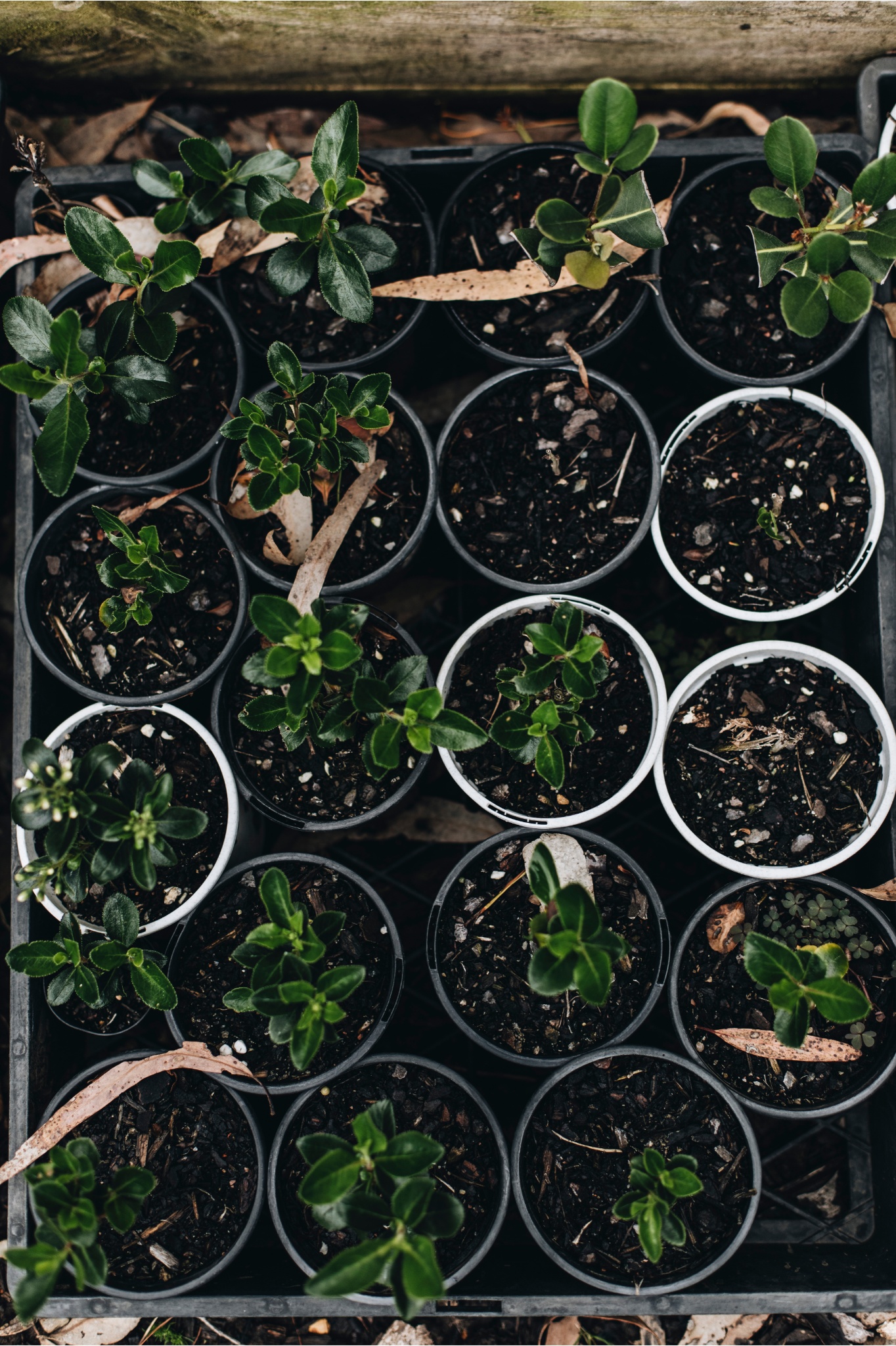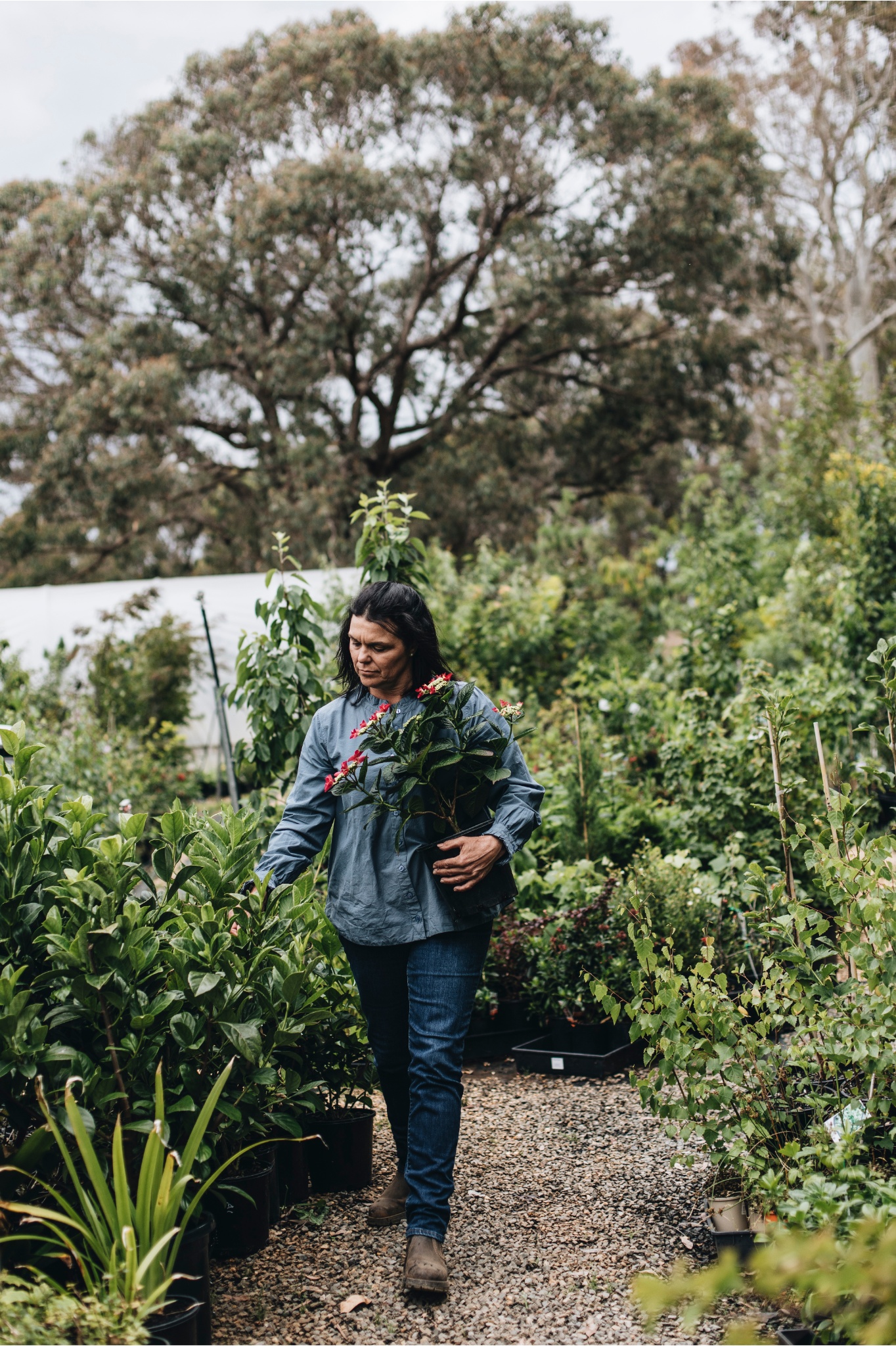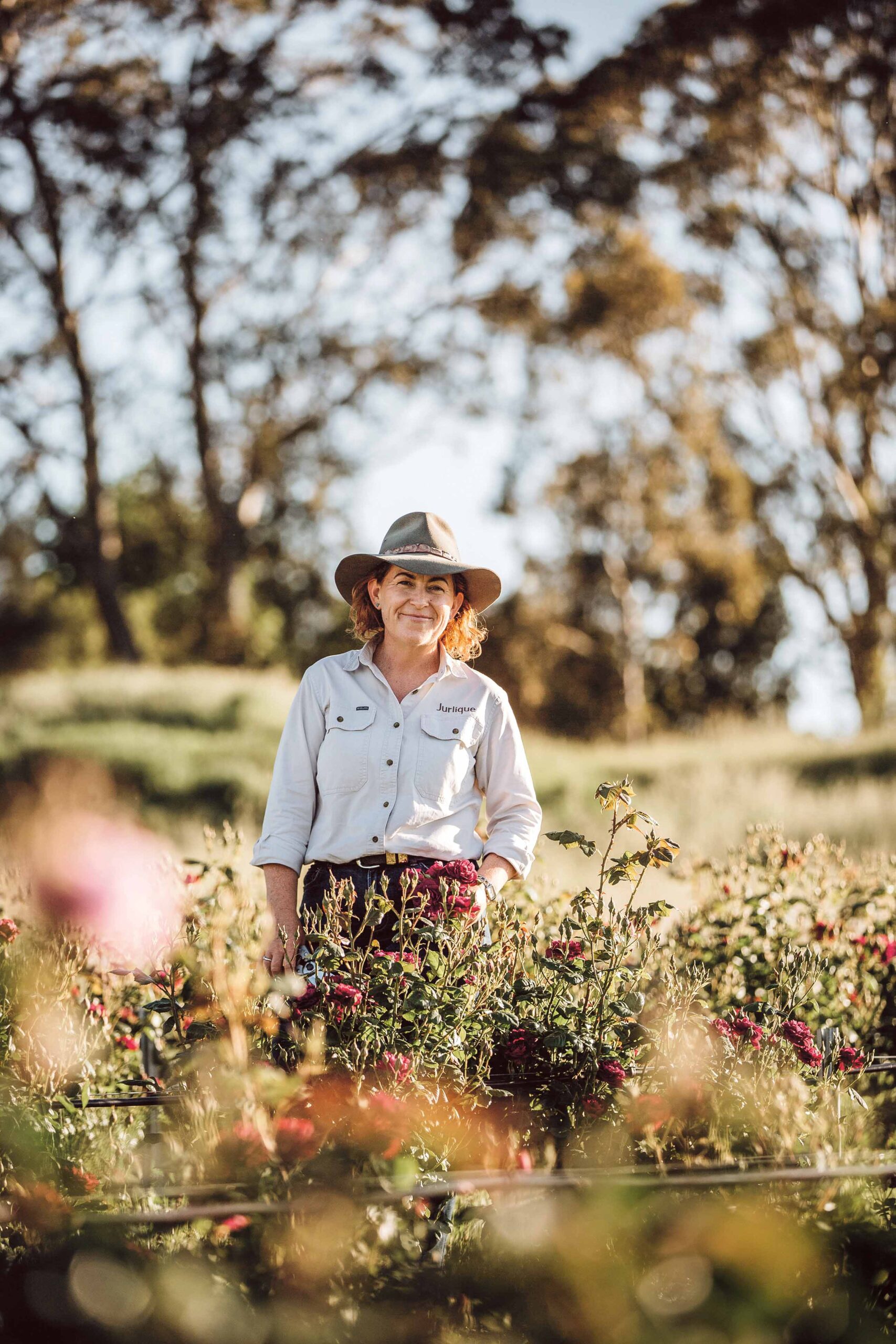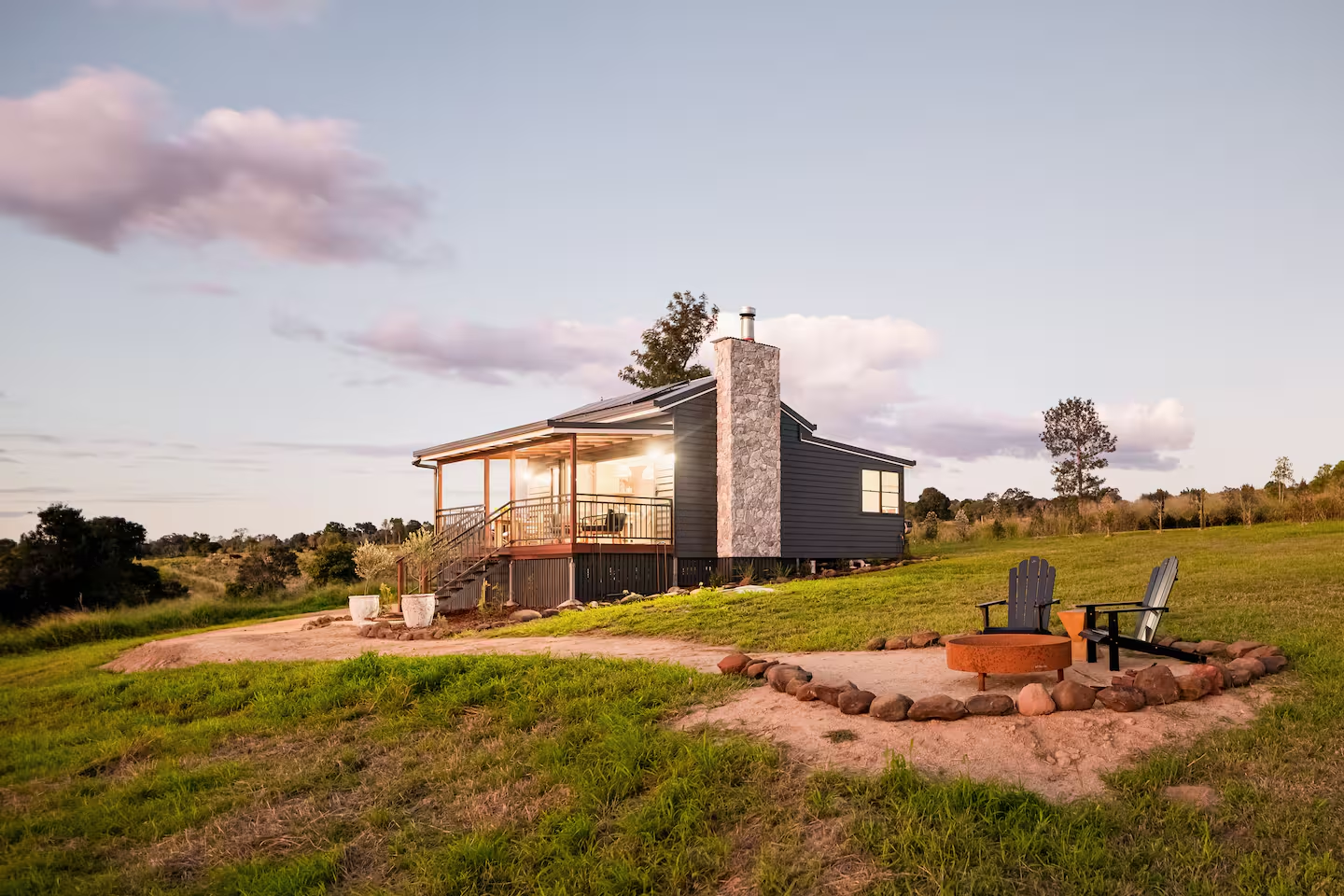Photography Abbie Melle
Sign up to our mailing list for the best stories delivered to your inbox.
Courtney Haywood Whipp’s passion for plants is putting The Crookwell Nursery on the map.
WORDS VICTORIA CAREY PHOTOGRAPHY ABBIE MELLE

Photography Abbie Melle

Photography Abbie Melle
Courtney Haywood Whipp knows her plants. I ask her to send me a list of her favourites and it lands in my inbox promptly after our interview. She writes so well and concisely about their virtues that I immediately try to work out how I can fit them all into my current garden, which is already bursting at the seams — not particularly helpful when I should be concentrating on writing this story.
But what strikes me immediately is that Courtney hasn’t had to think too much about this question at all; it’s clearly something that’s always front of mind for her, as the professional gardener behind The Crookwell Nursery in the Southern Tablelands of New South Wales.
It’s a climate that has a lot to offer. Beautiful rolling hills combined with four distinct seasons — and the wonderful autumn colour that brings — are a big drawcard. Throw into the mix significant gardens created by the famous Australian landscape designer Edna Walling — such as Markdale and Kiloren — and it’s irresistible.
“Edna was very special. I love everything she ever did: the curves, the stone walls… all of those elements that were so distinctly hers. She inspired me to do my plans in watercolours just like she did,” this busy mother-of-two tells me.
Courtney’s own garden at Lost River, a 20 minute drive out of Crookwell, began as a simple red clay house block in 2016. Eight years later, with the addition of many tonnes of cattle yard compost, it has finally taken shape.
“It takes a long time to build a beautiful garden, but it is then forever evolving and changing with the seasons,” she says.
This 11 hectare block at Lost River plays a pivotal role in Courtney’s business, as it serves as the nursery’s engine room. It is here that Courtney propagates and trials plants to make sure they can endure the climatic conditions in the nearby regions of the Southern Highlands, Canberra, Orange and Bathurst.
“We get early frosts and late frosts,” she explains. “I need to make sure the trees I sell in the nursery can withstand that.”
After spending her career working in commercial orchards and wholesale nurseries, plus a two-year stint caring for Nicole Kidman’s Southern Highlands property, Bunya Hill, this 46-year-old decided to launch her own nursery. The doors to The Crookwell Nursery opened in 2021. As part of a collective of shops in an old bank in Goulburn Street, the little nursery in the courtyard attracted a loyal following. “People would come for coffee, and find me too. The cooperative drew a lot of tourist traffic, and it was a fairly good landmark. I loved being part of that,” she says.
It wasn’t long before the nursery outgrew the courtyard and in December the business moved to a bigger space, with more room for the trees so carefully nurtured at Lost River.
“I will always need to have my hands in the dirt,” Courtney explains. “And this is really the perfect balance.”
COURTNEY’S FAVOURITE PLANTS
Zelkova serrata (Japanese elm). Reasonably fast growing in warmer climates, forms a stunning shady canopy of spreading limbs and reaches 20m x 20m. Larger leaves than the Chinese elm hang gracefully and turn orange, yellow and red before falling in autumn. Exceptional autumn colour and shade tree for larger gardens and is drought tolerant once established. My absolute favourite tree!
Lagerstroemia indica ‘Natchez’ (white-flowering crepe myrtle). A tree for all seasons with its multicoloured, peeling bark a feature in winter; red and gold autumn colours; and summer flowering. Its multi-trunked habit lends itself to planting in stands of three or five where space allows, and it reaches 8m high x 6m wide.
Parrotia persica (Persian ironwood). A small tree ideally suited to specimen planting with a rounded habit of 7m x 5m. The tree’s new growth emerges with coppery tones and becomes a deep, glossy green into summer. Grown for its rich autumn colour: the leaves become burgundy, red and orange all at once on the tree. The flaking bark is also a feature.
Hydrangea quercifolia (oakleaf hydrangea) — my favourite shrub — will tolerate more sun and heat than its fleshy cousins. Boasts bronzy autumn colour that persists into winter and gorgeous cream flower clusters that can be picked through summer. It reaches 1.5m x 1.5m and is a worthy inclusion for part-sun gardens.
Hebe buxifolia (boxleaf hebe) is a small super-tough evergreen shrub. It tolerates dryness, wind and poorer soil. It doesn’t become woody and requires no pruning. White flowers appear late spring to early summer. The perfect shrub for time-poor gardeners, it reaches up to 1m x 1m.
Trachelospermum jasminoides (star jasmine) is a fragrant, white-flowering and evergreen ground cover. Quite vigorous in warmer climates, it can be trained to climb and cover a fence or trellis or left as a ground cover. It flowers around Christmas time when you’re entertaining, so make sure you plant it near the house as the fragrance is divine. It’s very hardy and quite drought tolerant once established, perfect for the front of a border, too. Can reach up to 3m.
The Crookwell Nursery is located at 68 Laggan Road, Crookwell, NSW; 0422 525 620. On-site visits and design advice are also available.
Subscribe to Graziher and never miss an issue of your favourite magazine! Already a subscriber? You can gift a subscription to someone special in your life.
To hear more extraordinary stories about women living in rural and regional Australia, listen to our podcast Life on the Land on Apple Podcasts, Spotify and all major podcast platforms.

Raised on a dairy farm near Hahndorf, SA, farm manager Cherie Hutchinson has a deep love for the land she works on.

If you like the idea of a private plunge pool, mountain views and a glass of local verdelho, it’s time to start planning your Firebreak Farm escape.